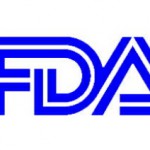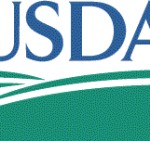Senator Dick Durbin (D-IL) has called for providing the FDA with the funds it needs to fully implement the Food Safety Modernization Act of 2011 (FSMA). The Senate appropriations committee passed a bill that fell short of the monies needed. The vote was along party lines. Durbin said that the huge recall of Aspen Foods and Barber Foods that are linked to two Salmonella outbreaks in Minnesota, Wisconsin, and Oklahoma highlights the need for increased vigilance. "The food safety allocation in this bill falls short of what is needed to reduce foodborne illness in this country," he said in a statement. The Food and Drug Administration estimates that it will take $276 million in additional funding to properly implement FSMA. The President's budget requested an increase of 109.5 million … [Read more...]
New Study Links Government Food Safety Spending and Illness
A new study conducted at the University of Washington School of Nursing has found that local government spending on food safety and sanitation programs affects the number of illnesses occurring in surrounding areas. Researchers looked at 11 years of data from county health departments in Washington state and New York. In Washington state, cuts to public health programs correlated with increasing Salmonella infections. In New York, cuts to public health programs correlated with increased Cryptosporidium infections. There have been major budget cuts and job losses in many local health departments around the country in recent years. Higher rates of Salmonella infections, which are usually caused by contaminated food, are associated with fewer food safety services. Cryptosporidiosis is … [Read more...]
Spending Bill Cuts $93 Million from WIC
The huge spending bill passed by Congress last week cuts $93,000,000 from the Women Infants and Children (WIC) Supplemental Nutrition Assistance Program (SNAP). That program gives low-income mothers and children vouchers for food that meets nutrition guidelines. WIC has been one of the most successful government programs in history. Both WIC and SNAP add money to local economies. In fact, every five dollars in SNAP benefits generates nine dollars in community spending. And the food purchased by SNAP recipients generates 3,000 farm jobs. In addition, every study shows that WIC improves birth outcomes. Almost half of the participants in SNAP are children. Legislators did require the WIC program to add white potatoes to the foods on the allowed list, pandering to industry lobbyists. … [Read more...]
Health Groups Ask Congress for More Money for FSMA
Several health advocacy groups have written a letter, asking Congress to add $50 million to the FDA’s fiscal year 2015 budget to full fund implementation of the Food Safety Modernization Act of 2011 (FSMA). FDA has estimated that it needs an additional $300 million over the next few years to fully implement the law, which was the first reform of the nation’s food safety regulations in years. FDA is finalizing the rules of the law and is building the systems needed to implement it. FSMA changed FDA’s approach to food safety, focusing the agency’s efforts on preventing food safety problems before they occur rather than reacting to illnesses and outbreaks after they occur. The comprehensive food import oversight system section of FSMA is a first, making importer responsible for the safety … [Read more...]
Obama’s 2015 Budget Cuts Poultry Inspection
Food & Water Watch has released a statement critical of President Obama's 2015 budget, which cuts the USDA's budget for the Food Safety and Inspection Service (FSIS) by $9.3 million as part of the "Modernization of Poultry Inspection Rule". Food safety experts call this "The Filthy Chicken Rule". Last year, the government's own Government Accountability Office (GAO) report called the results of the pilot program for this rule into question. That report evaluated 20 young chicken and five young turkey plants and found "gaping methodological flaws" in the pilot project. The GAO also questioned how FSIS could use that flawed evaluation as a basis to expand privatized inspections across the entire poultry industry. Wenonah Hauter, executive director for Food & Water Watch, said, … [Read more...]
Government Shutdown Cripples USDA
This morning, a message on the U.S. Department of Agriculture web site reads: "Due to the lapse in federal government funding, this website is not available. We sincerely regret this inconvenience. After funding has been restored, please allow some time for this website to become available again." The USDA web site has been shuttered because of the government shutdown, so if there are any recalls for Salmonella, E. coli, Listeria, etc. on meats, poultry, seafood, and eggs, an announcement will be made, but consumers will not be able to search for recalls. The USDA Hotline has been closed, food safety education has stopped, and label reviews will be halted. As part of essential services, inspection of meat, poultry, and egg products will continue, but 1,200 Food Safety and Inspection … [Read more...]
Cyclospora Outbreak Investigation Hindered by Sequester
In Healthcare News released by the Laboratory Science, Policy, and Practice Program arm of the CDC, officials say that the sequester has hindered the investigation of the cyclospora outbreak that has sickened more than 600 Americans in 22 states. The Centers for Disease Control and Prevention (CDC) has had to slash $285 million from its budget, when experts say the agency needs more funding as foodborne illness outbreaks become more complex and widespread. Many people think the sequester has not affected them because they don't see immediate and visible results. But programs from Meals on Wheels to Headstart to medical research, first responders, and food poisoning outbreak investigations have been affected. The facilities of Taylor Farms, the largest supplier of leafy greens in the … [Read more...]
Sequester Will Lead to Meat Inspector Furloughs
The Agriculture's Undersecretary for Food Safety, Dr. Elisabeth Hagen, said that there will be 11 days of unpaid leave required of food inspectors to meet the budget cuts that were imposed as part of the sequester on March 1, 2013. She spoke at the House Agriculture Appropriations Subcommittee on March 13, 2013. The furloughs will start in July and will continue through September 30, 2013. On those days, meatpacking plants will have to shut down. The cut that the USDA's Food Safety and Inspection Service (FSIS) will have to absorb is 5% of its $1 billion budget. But the effect is larger because all of the cuts have to be taken out of the last half or even the last quarter of the fiscal year, which ends September 30. And 87% of the FSIS budget is personnel costs. Some have proposed … [Read more...]
When Good Food Goes Bad: The Problems
The Center for Biosecurity at the University of Pittsburgh Medical Center has released a report titled "When Good Food Goes Bad: Strengthening the U.S. Response to Foodborne Disease Outbreaks." It is designed to improve the country's ability to respond to large foodborne illness outbreaks. The authors identify emerging trends in outbreak response and recommend ways to accelerate and strengthen public health reaction to these outbreaks. For part two of this story, see When Good Food Goes Bad: The Recommendations. There are ten major findings in the report. The first is that medical expenses and lost productivity cost this country more than $77 billion every year. And that the level of resources devoted to "preventing and responding to such outbreaks" is very small in comparison. They … [Read more...]
Secretary Vilsack Responds to Cattlemen About Sequester Effects
Last week Agriculture Secretary Tom Vilsack stated in a press conference that sequestration could lead to temporary layoffs of federal meat inspectors. That action would stop meat and poultry processing in this country for that time period. The meat industry responded to this statement by arguing that the USDA is "legally obligated" to provide inspectors at meat plants. National Cattlemen's Beef Association president Scott George said in a statement, "while we are certain the USDA contains other 'non-essential' employees, the Secretary has chosen to announce the consequences of sequestration in terms of a furlough of FSIS inspectors, essentially threatening to close down all production, processing and interstate distribution of meat. This action has already cost cattle producers … [Read more...]












